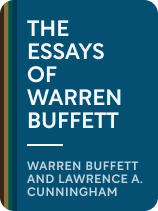

This article is an excerpt from the Shortform book guide to "The Essays of Warren Buffett" by Warren Buffett and Lawrence A. Cunningham. Shortform has the world's best summaries and analyses of books you should be reading.
Like this article? Sign up for a free trial here.
What is stock market volatility? Can volatility be a good thing?
Stock market volatility is the rate at which stock prices fluctuate over a period of time. While modern investment portfolios are designed to hedge against volatility as a way to handle risk, market volatility is a tool that can be exploited.
Keep reading to learn how to leverage stock market volatility, according to Warren Buffett.
Warren Buffett: Volatility Is Good
While downturns and stock market volatility can be frightening, Buffett echoes his teacher Benjamin Graham who said that for investors, volatility is good. Because the market’s behavior is irrational, it occasionally offers fantastic deals. And while rising stock prices may be pleasing to owners, if you’re an investor buying into a company, you want stock prices to be low. High stock prices are only beneficial to people intending to sell. As long as a company’s stock price remains low, you can get higher returns on your money by buying ever-larger portions of the business.
(Shortform note: Market volatility is defined as the amount and frequency at which a stock price fluctuates. The Volatility Index (VIX), for example, is a tool used to measure the volatility of the 500 largest US public companies (commonly known as the S&P 500). A VIX rating of 20 or higher signals a time of high market volatility, while a rating of 12 or below indicates low volatility in trading.)
If you don’t have the time or resources to do thorough research into business valuation, he recommends putting your money into a simple, unmanaged S&P index fund. That way your gains will match the overall market with minimal loss to brokerage trading fees. Forget the excitement that comes from day trading and watching individual stocks go up and down. Remember that every trade loses money to fees, and that trying to “beat the market” in your gains is tantamount to gambling at a casino.
| Mindful Investing In The Intelligent Investor, Buffett’s mentor Benjamin Graham differentiates between thoughtful investors and speculators, who are led by emotion and irrational optimism. Graham says most people are defensive investors who wish to make money simply and safely without putting too much effort into decisions. If this describes you, then low-cost index funds are ideal. Aggressive but thoughtful investors, such as Buffett, put all their time and energy into well-researched investments, in effect making investing a full-time profession. In I Will Teach You to Be Rich, Ramit Sethi lays out the steps for slow and deliberate personal investing. He advises starting with retirement accounts such as your employer’s 401(k) (if available), then opening your own Roth IRA. Sethi then says to automate your payments into your investment accounts and to explore index and mutual funds before educating yourself on other types of equities. |

———End of Preview———
Like what you just read? Read the rest of the world's best book summary and analysis of Warren Buffett and Lawrence A. Cunningham's "The Essays of Warren Buffett" at Shortform.
Here's what you'll find in our full The Essays of Warren Buffett summary:
- A glimpse into the mind of a man who disagrees with the typical Wall Street mogul
- Buffett's simple yet difficult insights on investing
- Why some of the most widely accepted economic practices are wrong






